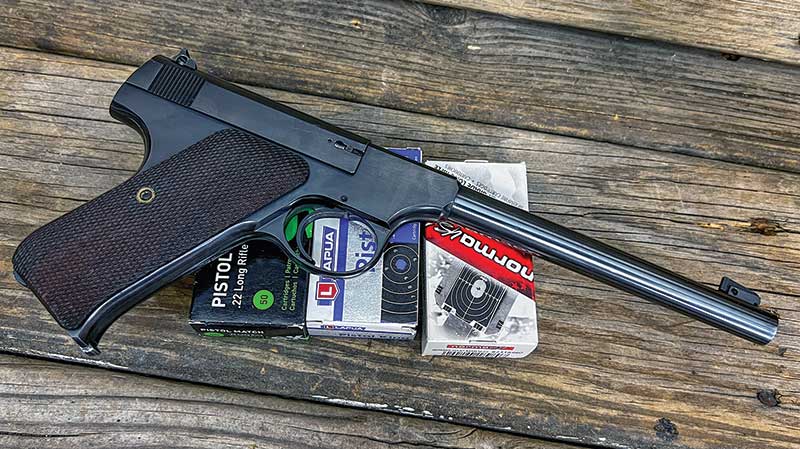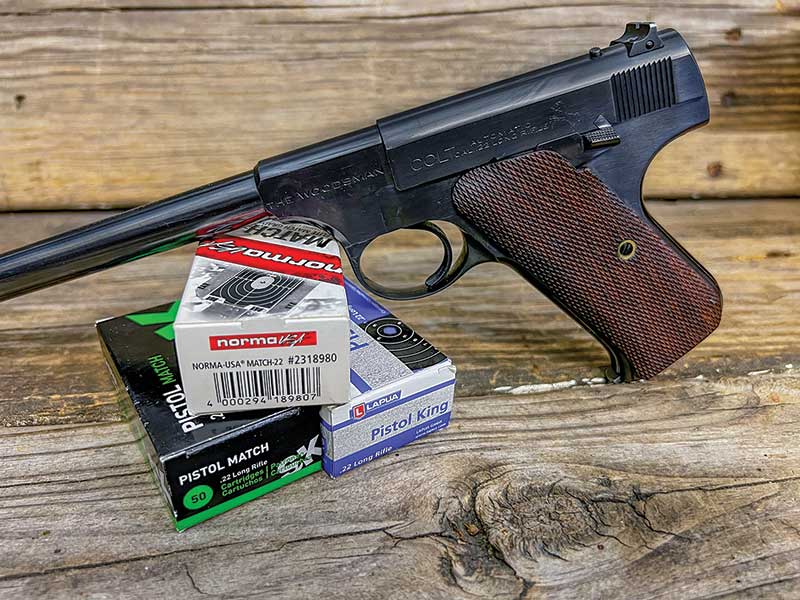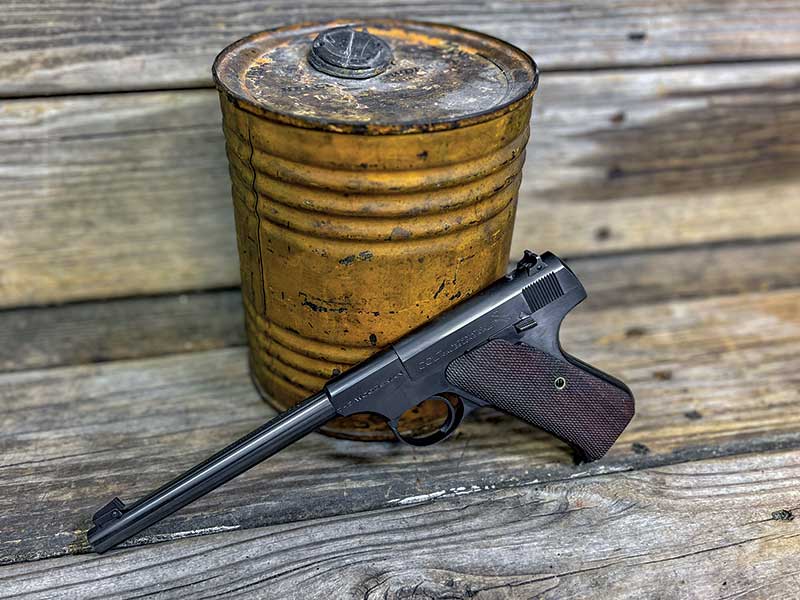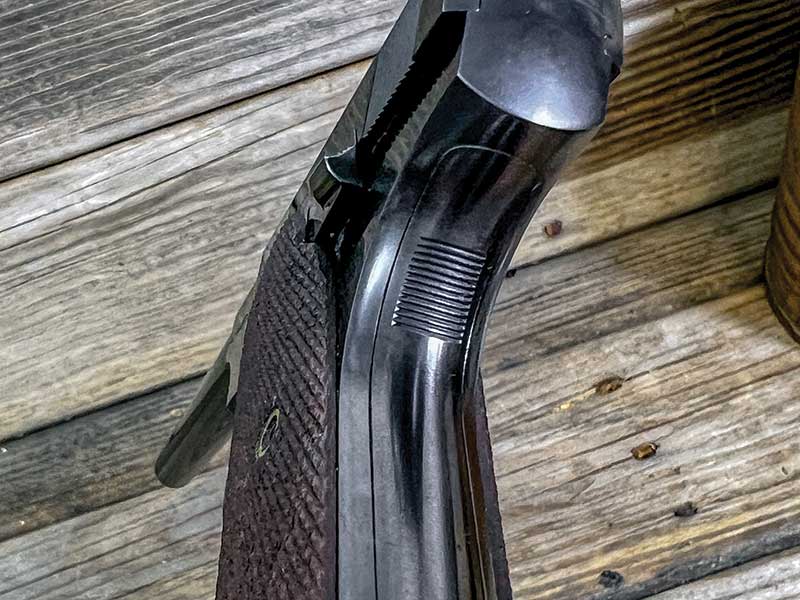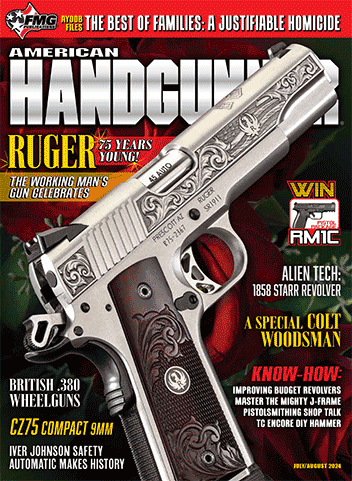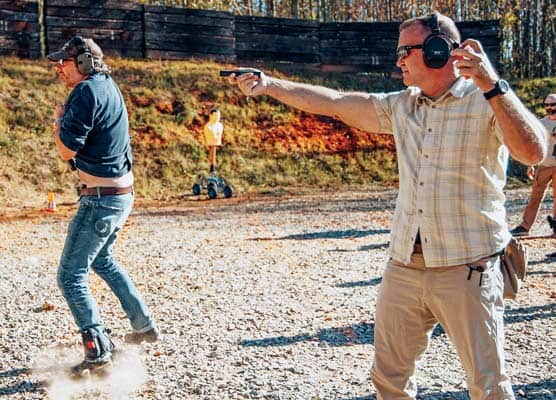About 25 Years Ago
About 25 years ago, my grandfather gifted me a beautiful Colt Woodsman Target pistol — and I do mean pristine. While the box was long gone, what emerged from the oil-soaked rag was one stellar example of mirror-polished blued metal — the kind you don’t see very often nowadays.
He wasn’t a “gun guy,” but owning a farm his entire life, he had occasional need for critter maintenance and, on rarer occasions, two-legged menaces. His revolver passed down from his father was bequeathed to him with two notches on the grip. We never knew the story behind those marks.
Upon seeing the Woodsman, I asked, “How long have you had this?” His answer? “About 25 years…” Well, as I later discovered, not quite, but we’ll come back to that.
Stories Included
We got to talking about the other guns he was giving to his grandchildren, several of which came from his service in World War II. A Captain in the 86th Blackhawk Division, he landed at LeHavre in March of 1945. Along with his 8,000 fellow soldiers, it didn’t take long to see the horror up close. The once-thriving port city was utterly destroyed. Wreckage everywhere, punctuated by misshapen iron, formerly support structures, warehouses and the usual port facilities.
He had never talked much about the war, but when the guns came out, he seemed to open up, just a bit. He maintained his lock on the ugly, as he had his entire life, but did share a few lighter anecdotes.
My brother ended up with an FN 1906 (you might know it as a 1905) .25 ACP vest pocket pistol, this one taken from a German officer. By April 1945, the 86th was coursing through the Ruhr under Patton’s 3rd Army and was taking prisoners by the tens of thousands.
I had to ask him how he brought it home. With a rare smirk from a very serious man, he told me. “Well, the way it worked, when we relieved the German prisoners of their guns, you could take one home, but you had to get permission from the officer in charge. As it turned out, I was the officer in charge of the prisoners…”
Woodsman: First Series
Colt began making the Woodsman in 1915. The First Series ran into 1942, although the Match Target variant ran into 1944. Second Series production ran from 1947 through 1955, and the Third Series continued to 1977. All told, the company made about 650,000 of these nifty hand plinkers.
The easy way to identify a First Series is to look at the serial number on the front strap. If it’s all numbers and no letters, it’s a First Series. The numbers ran from 1 to 157,037. One exception: the First Series Match Target models had an “MT” prefix
Elegance In Steel
This sample is a target model with a 65/8″ round barrel. Other Woodsmans came with flat-sided barrels, but this one, being long and slender, just screams for the curves of the trigger guard and frame blending smoothly into the barrel itself.
Being made back when people had sense, you won’t find any of the modern trash engraved. You know, like, “This is a firearm, don’t shoot yourself!” Instead, on the left side of the frame is simple “The Woodsman” followed by “Colt,” the caliber and the iconic pony.
The first series marked the transition from .22 standard to .22 High Velocity. Serial numbers aren’t an exact indicator, but if you look at the top of the backstrap in the beavertail area, you’ll see a pattern of chiseled horizontal lines. If you see checkering, it’s an earlier model, only appropriate for standard velocity. I stick to match ammo with this one. It just seems right.
While later models used pushbutton magazine releases near the trigger guard, this one’s European styling, with its heavily raked grip, is at home with the heel magazine release.
Without a doubt, this is the most beautiful gun I own. Yes, it’s a looker, but I have to admit much of its appeal is its family heritage.
About 25 Years Ago
Months later, when I discovered the real acquisition date of this beautiful pistol (1936 or possibly ’37), I had to share the news over a family dinner. “Grandpa, you didn’t buy that pistol 25 years ago, it was in 1936!” We had a good chuckle and he observed, “Well, maybe I’ve had it a little longer than I thought.”

